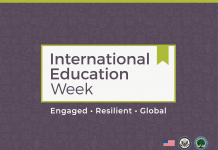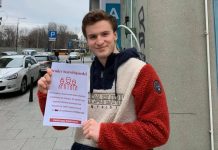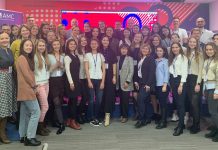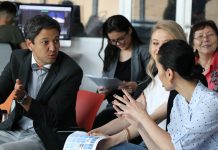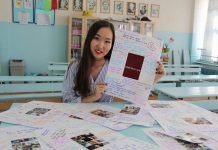Dima David Mironenko-Hubbs ’98
Volgograd, Russia/Pinson, AL
dmironenko [at] gmail [dot] com
Current city: Cambridge, MA
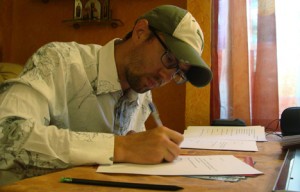 One of the biggest turning points in my own life was becoming a finalist of the Freedom Support Act program 13 years ago. Only years later did it start to come home to me how many doors participation in this program had opened for me. As someone who chose to pursue a career in academia, I am strongly convinced that true and lasting changes in a country’s political and social systems are only possible through investment in education. It is due to this realization that I have come to cherish a hope of starting a similar scholarship someday, albeit on a smaller scale, in my own home high school in Volgograd.
One of the biggest turning points in my own life was becoming a finalist of the Freedom Support Act program 13 years ago. Only years later did it start to come home to me how many doors participation in this program had opened for me. As someone who chose to pursue a career in academia, I am strongly convinced that true and lasting changes in a country’s political and social systems are only possible through investment in education. It is due to this realization that I have come to cherish a hope of starting a similar scholarship someday, albeit on a smaller scale, in my own home high school in Volgograd.
But the day when I would have the resources and clout to endow my own scholarship comparable to Senator Bradley’s brainchild seemed to lie somewhere in a very distant future, so I realized I need to start with something small. This first step was launching an essay contest this year in Volgograd’s Gymnasium No. 13, the school I myself graduated back in 1999. The idea behind this project was threefold: to encourage the students to use English, advance democratic thinking, and promote civic participation. In the long-term perspective, this project is aimed at raising a generation of democratic-minded youth whose value-orientation would ensure making the right choices when the time comes to effect democratic change in the popular mentality of our society. Unfortunately, today Russia remains a highly corrupt country with an undeveloped sense of social justice, low tolerance, and a widely shared authoritarian mindset. However, this does not mean that things cannot change. This is the reason I decided to challenge the students of my high school to think about issues that are often eschewed in the classroom, but are central to the very survival of democracy.
This year’s essay topic invited contestants to reflect on the nature of democracy by focusing on what in their opinion would be the single most important factor for a successful democracy and to analyze whether this requirement is present or lacking in contemporary Russia and what condition needs to be met in order for this prerequisite to emerge. Fortunately, the difficulty of the posed question did not deter the students, and we had contestants from different years submit extremely thoughtful and sometimes personal essays. The top three essays were awarded memorable prizes and three more received a special mention. This whole project would not have been possible without the dedicated help of my parents, Vera and Evgeny, who not only facilitated every step of the process, but were also instrumental in its very conception and development.
This past summer, when I visited my hometown, I met with the finalists of the essay contest to congratulate them in person, and with the school administration to discuss our further collaboration. I was overjoyed to find out from the school’s vice-principal, Elena Nekrylova, that my modest project dovetails well with the school’s civic participation curriculum and that the administration was excited to support it. We are currently working on making it into a well-known annual essay contest that would draw an increasing pool of participants. The more I thought about the future of this contest, the more I became convinced that the best way to get more people involved in it is by sharing the enthusiasm and responsibility with the students themselves. It was then that I decided to ask the first cohort of the contest finalists to become the steering committee for this year’s contest. When I met each student in person over a celebratory dinner in their honor at one of the new Volgograd waterfront restaurants in July, I saw more than excitement in their eyes over the iPods and award certificates they walked away with from this contest. What I saw was a group of very promising individuals who possess the potential to change our society for the better. It is for these young people that I think we collectively, as alumni of various prestigious programs, should create opportunities to open new doors, even if these opportunities merely mean a line on their resume or a recommendation letter we can provide that would get them into their college of first choice. It was with this idea in mind of using one’s own capital, financial as well as political, small as it may be, that this essay contest became the first step toward making my dream of creating a new scholarship for Russian high schoolers.
Dima David Mironenko-Hubbs is currently pursuing a Ph.D. degree in the Department of East Asian Languages & Civilizations at Harvard University in Cambridge, MA. His dissertation explores the relationship between laughter and politics in the history of North Korea by primarily focusing on the evolution of the comedy genre in cinema.
Photo:
Essay contest finalist with vice-principal, Elena Nekrylova (top left), principal, Vera Dubova (bottom left) and Dima’s mother, Vera Mironenko (bottom right)

